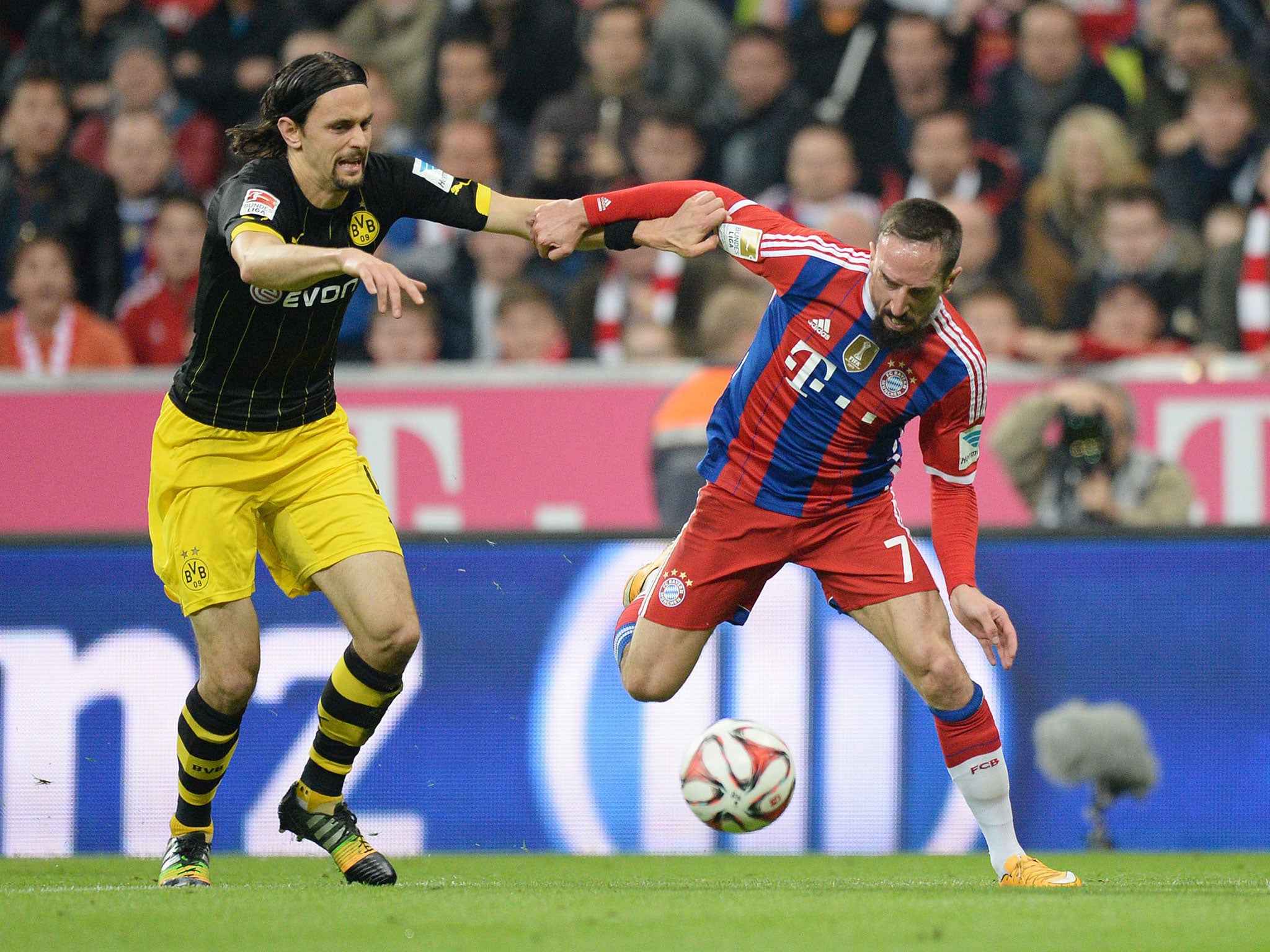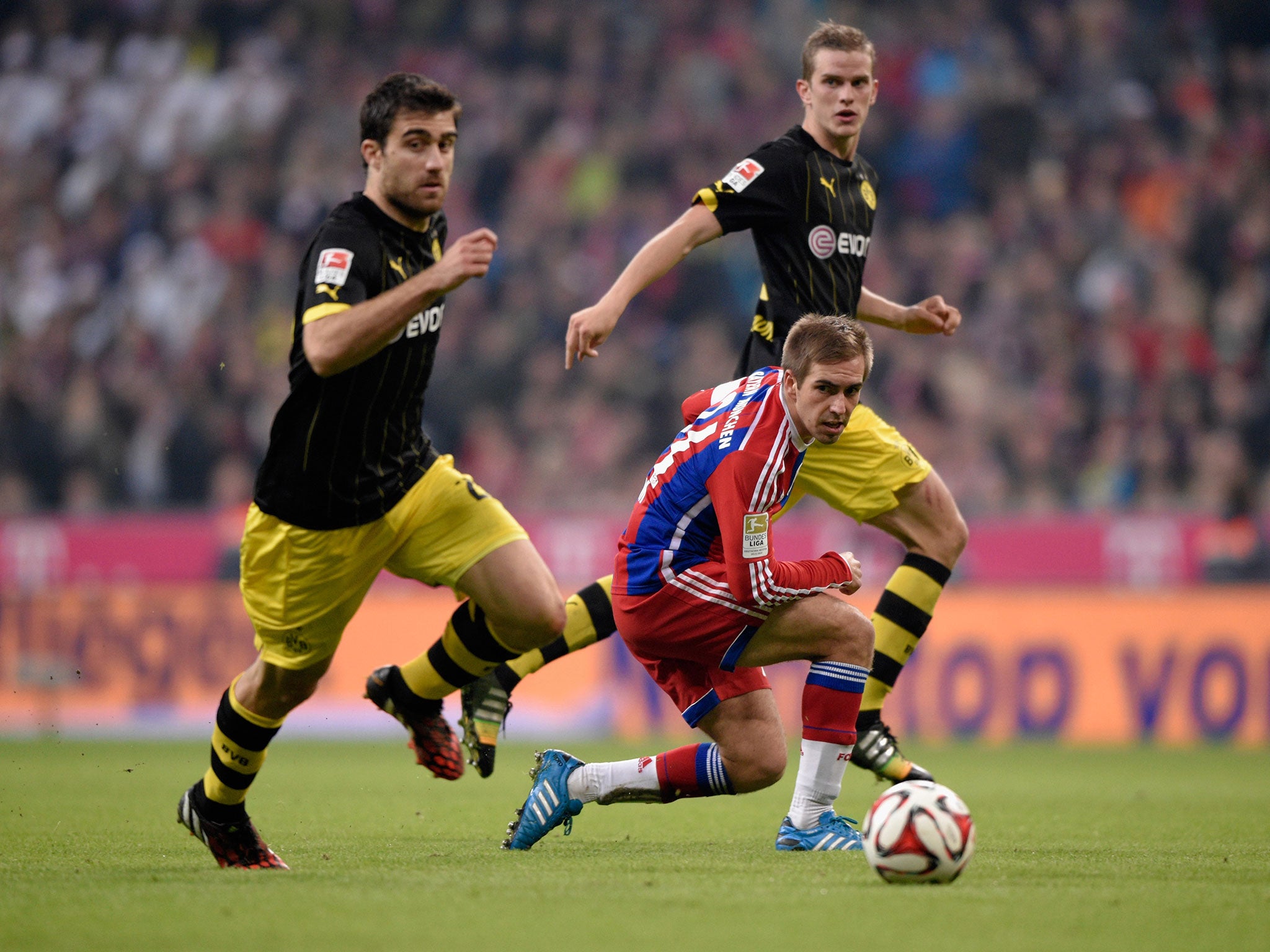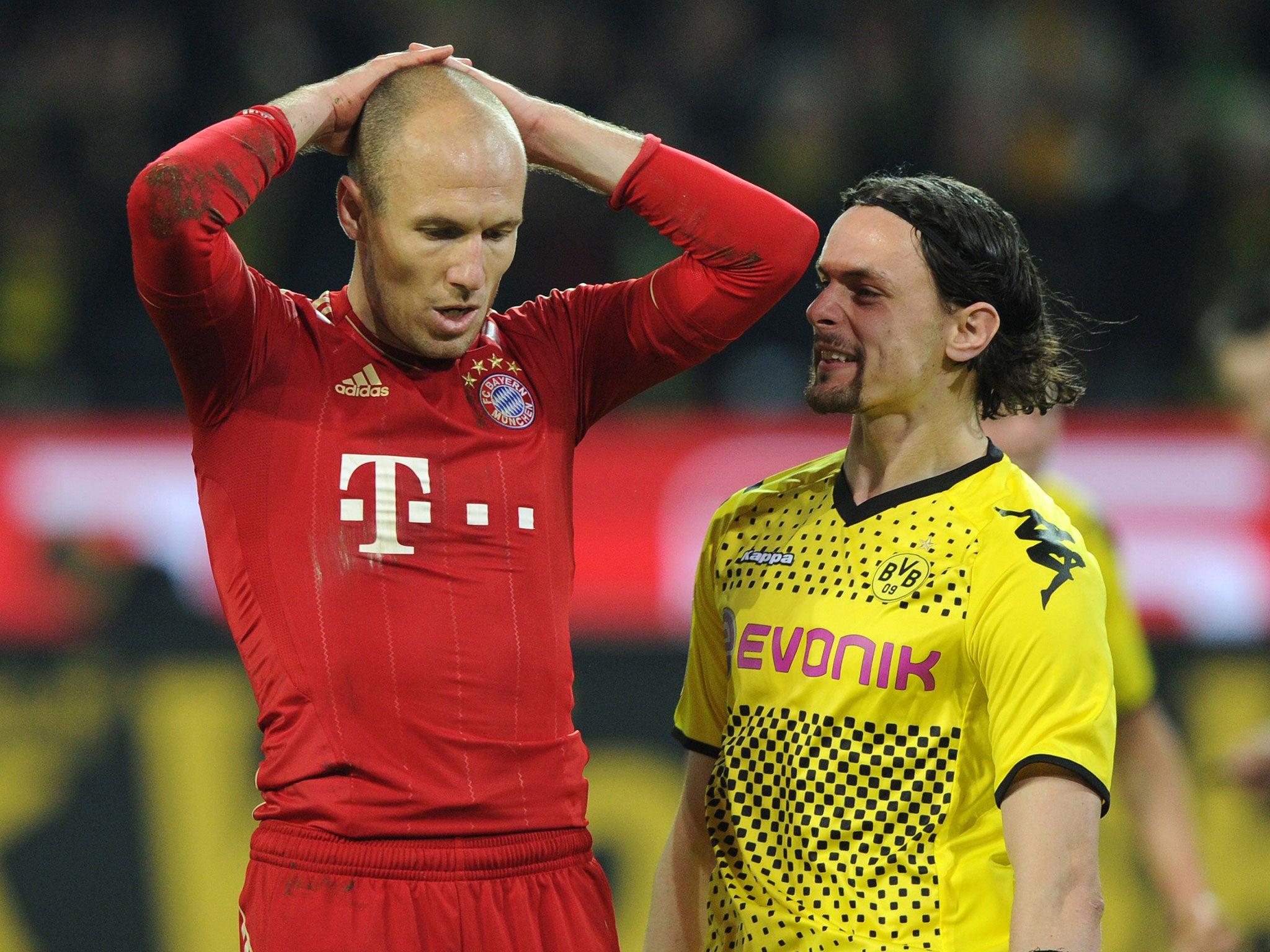Borussia Dortmund vs Bayern Munich: 'Der Klassiker' remains as anticipated as ever, but it would be better not to believe the hype
The 2013 Champions League final hes led to the rivalry taking on more than it actually represents

In the build up to the Champions League Final in 2013, a gigantic billboard was erected over Wembley Way. On it, the words El Clasico had been crossed out and replaced with the words Der Klassiker. It was a message which, for a fleeting moment, made the heart leap. After a decade of characteristically Teutonic soul-searching, the German game had found its feet.
At that moment, Der Klassiker became common parlance in European football. It became the name which observers across the continent officially endowed upon any fixture between Bayern Munich and Borussia Dortmund. The phrase even got its own English language Wikipedia page.
Even now, with Dortmund languishing in mid table and Bayern once again running away with the title, the hype has not died down. Saturday's meeting in Dortmund between the two sides is as eagerly awaited as ever. FourFourTwo have put Jürgen Klopp on their front cover in preparation, Bild have gone their usual, unique brand of bananas, Jupp Heynckes is expecting a “fiery duel”. All the old cherries are out, in fact. Germany's biggest rivalry. The Bundesliga's crunch fixture. Der Klassiker.
It is almost enough to make one forget that, until 2013, this fixture was one of several in German football which were referred to – in relatively equal measure - as Der Klassiker. At varying times, Bayern's fixtures against Hamburg, Werder Bremen and Borussia Mönchengladbach have all held the name. Most still do, if it suits a particular news agenda. Of Bayern's major challengers, past or present, the only two to have largely escaped the Klassiker moniker are Wolfsburg and Leverkusen: two clubs condemned, even at their most brilliant, to disdain and externally imposed ignominy.
Dortmund versus Bayern does have a special flavour. No other two German clubs have competed in a European Cup Final against each other. In the nineties, and over the last five years, the two sides dominated the Bundesliga, lumping chunks, verbal and physical, out of each other at every opportunity. Star players switched allegiances (usually, but not always, to Bayern's benefit). Olli Kahn tried to cut Stéphane Chapuisat in half. Neven Subotic pulled a Martin Keown on Arjen Robben. A feisty rivalry it has always been.

But Germany's biggest rivalry? Not in the grander scheme of things. Ask most Dortmunders in that famous old Südtribüne and they will tell you that victory over Schalke is sweeter than victory over Bayern. Hamburg and Bremen's is a more deep rooted enmity than Bayern and Dortmund's. The derby between Cologne and Gladbach is more prone to violence.
So why has this game suddenly taken on such significance, more than Bayern's ties against Bremen, Hamburg and maybe even Gladbach ever did? Considering Dortmund's current predicament, it is fair to say that the club's recent occupation of Bayern's perch was just as short-lived as Bremen's, Hamburg's and Gladbach's before them. Klopp's glory years were just the latest chapter in the Bundesliga's very own Circle of Life. It is a precisely cyclical ecosystem: Bayern dominate so heavily that they begin to regress, until another team catches them. The world proclaims the end of Bayern's dominance. Bayern get offended, and do some redecorating. Bayern dominate again. Back to Square One. So it goes on, in perfect, predictable harmony, only ever pausing to see Rafiki hold Pep Guardiola triumphantly aloft on Pride Rock.
The main reason why Dortmund have succeeded in creating a continental blockbuster out of their brief rivalry with Bayern is, of course, the Champions League Final of 2013. Rightly so, too, given the significance of that game for German football. It was serendipitous, too, that the first all-German Final came at just about the time that Dortmund, the Bundesliga and the German FA were beginning to unleash a volcano of hot molten PR upon the world's media.

In 2013, the term Der Klassiker was gold dust for the PR gnomes deep inside Bundesliga HQ. A generic term to describe a high profile game in German football, but also a term which reflected Dortmund and Bayern's conquest of Barcelona and Real Madrid respectively in the Champions League semi-finals. In one fell swoop, Der Klassiker became Bayern versus Dortmund, and the world lapped it up.
The same PR gnomes pulled a similar trick on international audiences last year. After the World Cup triumph, the German FA entitled their celebratory World Cup movie Die Mannschaft. It can only have been for the benefit of foreign fans. Nobody in Germany calls the national team Die Mannschaft. Even the Germans aren't so unimaginative that they would nickname their team “Team”.
There is nothing wrong with all this per se. PR gnomes are a lovely lot, as gnomes go. It is not wrong to call Germany Die Mannschaft, nor is it wrong to call Bayern versus Dortmund Der Klassiker. Saturday's game between Bayern and Dortmund may well be an entertaining, emotionally fraught game of football. But it will ultimately have no effect whatsoever on this Bundesliga season. There is little to be won from this match, beyond seeing how Bayern cope without the injured David Alaba, or whether Dortmund can fleetingly regain their mojo for the 100th time this year, only to lose it again two weeks later against Paderborn.
With the attacking flair of both sides, Dortmund's current, comical defending and Bayern's customary mid-late season wobbles, it will be a fun ninety minutes. But with one team confused and in tenth, and the other bored and nearly Champions, it is hardly a season highlight. Maybe just this time, dearest Bundesliga fans, it would be better not to believe the hype.
Join our commenting forum
Join thought-provoking conversations, follow other Independent readers and see their replies
Comments